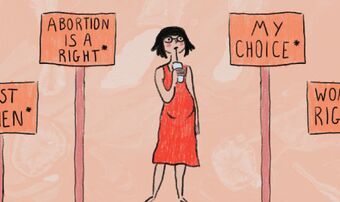This is an attempt at a genuinely theological response to a declining marriage rate, with some public policy thrown in for good measure.
Let’s start with the cold hard facts. According to Statista, the marriage rate for heterosexual couples has declined considerably since 1972.
The facts
- For men, since 1972, the marriage rate per 1,000 of the population has fallen from 80 to 20.1 by 2018.
- For women, since 1972, the marriage rate per 1,000 of the population has fallen from 63.5 to 18.6 by 2018.
- In 2018, in England and Wales, 270,000 marriages took place. Compare that with 480,285 in 1972.
On a more positive note, the divorce rate has fallen from 13.3 in 2003 and 2004, to 8.9 in 2019. However, you’d expect this because of the decline in the number of marriages. To conclude: the number of marriages taking place has been declining steadily for decades.
How did we get here?
To answer this question, we need to trace the history of divorce laws in this country. What follows is not a comprehensive summary (that would be beyond the scope of this article). Rather, we’ll look at some key dates over the last 200 years and you should notice a pattern.
In 1858, civil divorce for ‘ordinary’ people first became available. Adultery was the sole ground. Wives had to prove one or more offences by their husbands to obtain a divorce. In 1923, this last requirement was abolished and in 1938, extra grounds for divorce were added including cruelty and desertion. Each of these grounds was based on ‘fault’.
In 1971, when the 1969 Divorce Reform Law came into effect, the sole ground for divorce became ‘irretrievable breakdown of marriage’. It could be proved by establishing one or two facts: adultery, unreasonable behaviour, desertion, separation for two years with consent and separation for five years without consent. If the grounds were unreasonable behaviour, divorce could happen more quickly.
Over time, getting a divorce has become easier and easier
In 2018, the UK Government announced plans to remove the need to identify a ground for divorce. In effect, they proposed divorce simply because one party wanted it. This came into force in April 2022.
What’s the pattern? Simply that over time, getting a divorce has become easier and easier. Say what you will about divorce (and the there’s a range of theological views on that!), but logically if you make something easier, it’s more likely to happen.
Digging deeper: what’s behind the decline?
Here’s where we swim into deeper waters. Lots of helpful analysis already exists. But one thing you cannot fail to notice from the timeline above is the overall trend. Since civil divorce was granted in 1858, over the centuries that have followed and especially since 1971, it’s become a lot easier to obtain a divorce.
From a Christian perspective, our response to this at the most basic level must be sadness and concern. I say that because if you make divorce easier, you by implication are making marriage less of a commitment. Laws send social messages. When divorce was harder to obtain, it sent a message that commitment and marriage vows mattered. But now that’s no longer the case.
So, I think we can attribute some of the reason for the decline is marriage rates to the loosening of divorce laws.
From a Christian perspective, I think you want divorce laws to reflect the importance and significance of marriage. It’s necessary in a society where sadly cheating, abandonment and abuse mean sometimes it is right for a marriage to end to have divorce laws. But what you don’t want to do is make divorce too easy. By doing that, you cheapen the institution of marriage.
Strikingly, in 1969, as part of the sexual revolution, the Divorce Law that came into effect made divorce easier. And the result? More divorces. The change was it allowed couples to divorce after two years of separation. If only one party wanted to divorce, it was five years.
Financial reasons
But we need to go beyond just looking at the divorce law changes. While they’ve not helped, we also need to look at financial reasons for a decline in marriage.
We currently have a tax system that actively discriminates against married couples and against families as well.
Research by the Family Resources Survey last year showed that if you’re white and rich you get a dad and if you’re white and poor you probably don’t. In the wealthiest fifth of white families, 84 per cent were married. In the poorest fifth, just 19 per cent were married.
Our tax system actively discriminates against married couples and families
So, there’s another angle on the decline in marriage: it’s the privilege of the middle class and the rich to get married, but it’s largely unobtainable for those on lower incomes. The current cost of living challenge is hardly going to help. [JG2]
Current social climate
We must also understand that the social climate has changed enormously. Commitment is not prized the way it once was. The sexual revolution promised free love and although it has failed to deliver, the result has been sex without the consequences. There’s a strong ‘try before you buy’ mentality.
Moreover, we live in an era where choice and self-determination are two dominant idols of our time.
Jesus says that Moses granted a certificate of divorce because of the hardness of the people’s hearts. This immediately indicates that divorce is necessary because of sin. It’s an accommodation to our failures and weaknesses.
Moving towards a Christian response: creatively and persistently affirming marriage as a God-given gift
Two things are worth bearing in mind. Firstly, from a Christian point of view, marriage is a God-created institution. Like so many things, we’ve taken God’s good design and we’ve messed it up. But, given the significance of a wedding taking place at the creation of Adam and Eve and given our Lord’s dignifying of a wedding at Cana and his positive affirmation of marriage, it remains a good thing. In fact, in terms of commitment, there’s nothing else like it in the world.
Secondly, stable marriages provide the best environment for children to be raised. This too is God’s design. Each marriage is a new family unit starting. If God blesses a marriage with children, then those children are doubly blessed because they are born into a more stable home. There’s public policy evidence that growing up with married parents improves the life chances of young people.
Marriage shows us the shape of the gospel
From the Christian worldview, marriage is a foundational part of a good society. As Christians we should not just sigh in response to the falling marriage rate. Rather we should humbly acknowledge that our own marriages are not perfect; that we must model sacrificial love, faithfulness, and perseverance and that we should also not look to marriage for our ultimate fulfilment.
As Sam Alberry has said, if marriage shows us the shape of the gospel, singleness shows us the sufficiency of the gospel.
For those of us able to engage with politics and in a position to do so, we should persuade politicians and decision makers of the benefits of marriage. In a society that doesn’t prize commitment, we need to be creative.
So, let’s point out the inherent injustice in our flawed tax system that CARE has been raising for years. Let’s champion more affordable weddings – surely one of the great blessings of the various lockdowns was people rediscovered the beauty of a simply wedding!
Let’s also champion inter-generational households! What a powerful solution to an aging population.
And let’s also remember that in God’s grace, people can find a new family in the local church. Marriage is not, I repeat, not, the be all and end all. At the same time, we want to affirm its place in society and tell the better story of how strong, stable marriages are a vital part of a good society.
It should be possible to affirm this while simultaneously acknowledging the invaluable love and effort by single parents who, perhaps through no real fault of their own, have to raise their families by themselves.
Alongside a recovery of marriage, let’s also champion inter-generational families! But that’s a subject for another time.







